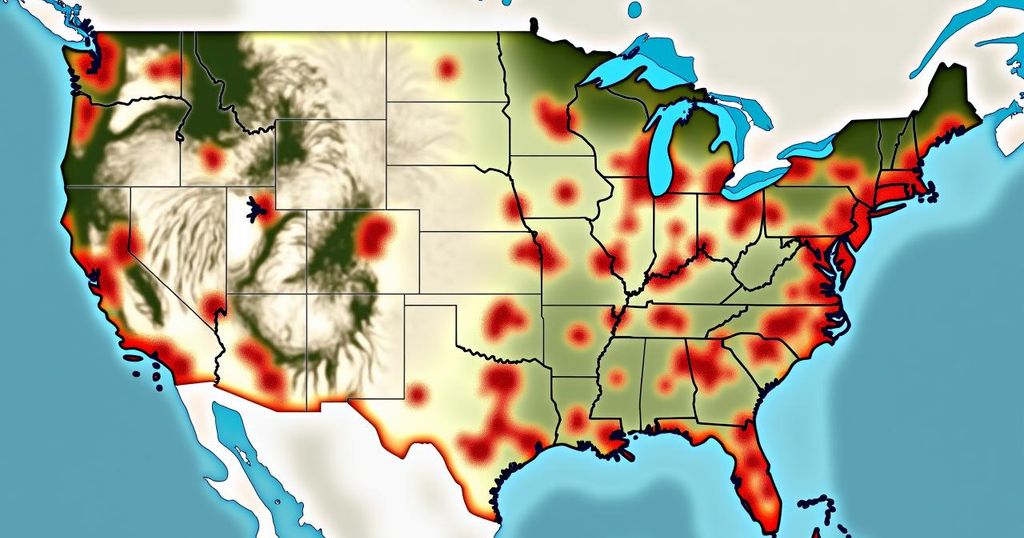Assessing Hurricane Risk: The Ten States with the Lowest Chance of Severe Weather Damage
This article discusses the increasing peril posed by hurricanes in the U.S., particularly highlighting the consequences of Hurricane Helene. It provides an overview of the heightened risks experienced by homeowners and emphasizes the importance of assessing environmental risk scores when considering property purchases in various states. It ultimately identifies states with lower risks of natural disasters, enabling informed decisions in real estate ventures.
As hurricane seasons become increasingly perilous, individuals considering homeownership are understandably concerned about their future properties’ safety from extreme weather events. This article highlights the risks posed by hurricanes, floods, and other forms of severe weather across various states and provides insight into regions that exhibit lower risks of such disasters. In light of the devastating impact of Hurricane Helene, which resulted in over 215 fatalities and extensive property damage, it has become evident that several U.S. states experience heightened vulnerability to natural disasters. The widespread destruction from Helene has led to heightened awareness regarding the potential hazards homeowners face, further amplified by the fact that more than 730,000 homes remained without power a week after the storm. The troubling reality is that extreme weather incidents have surged, with damage costs exceeding $25 billion so far this year. Climate change has been a significant contributor to this increase in natural disasters, with global flooding episodes rising by 20% since the turn of the millennium. Moreover, the escalation in hurricanes’ intensity and wildfires has drastically affected living conditions, particularly in the South, where heatwaves can significantly damage infrastructure. In the aftermath of Helene, many homeowners will require extensive financial support for repairs that typical insurance policies may not sufficiently cover. As a result, some individuals have opted to forgo home insurance, exacerbating their vulnerability to future disasters. In response to these challenges, Realtor.com has developed environmental risk scores for properties, designed to assist prospective buyers in determining safer locations by evaluating the risk of natural disasters like hurricanes and floods. As highlighted by Jiayi Xu, an economist at Realtor.com, “Hurricanes present substantial challenges for homeowners, including property damage, increased financial costs, community recovery issues, and emotional stress.” Using these risk assessments, future homeowners can make more informed decisions regarding potential properties. The states exhibiting the lowest risk of hurricane-related damage present viable options for individuals seeking to minimize their exposure to the risks associated with extreme weather phenomena. According to a study conducted by Realtor.com, some states such as those with over 90% of homes in low-risk areas, provide a sound basis for investment in property. This article serves to inform prospective homeowners about available tools to assess environmental risks as they navigate the housing market amid ongoing climate-related threats.
Hurricanes have repeatedly demonstrated devastating consequences, particularly for states along the U.S. coastline. The recent onslaught of Hurricane Helene serves as a reminder of the persistent risks associated with extreme weather events. This year, the financial toll from major storms alone has reached unprecedented levels, underscoring the significance of assessing environmental risks before purchasing property. The focus is on identifying states less prone to such natural disasters so that homeowners can alleviate these looming concerns.
In conclusion, while extreme weather events like hurricanes pose significant threats to homeowners across the United States, there exist states that present notably lower risks. By utilizing tools such as environmental risk scores offered by Realtor.com, prospective buyers can prioritize properties in regions with minimized chances of enduring hurricane damage. Overall, an awareness of regional vulnerabilities can ultimately protect individuals from the severe repercussions associated with natural disasters.
Original Source: nypost.com




Post Comment